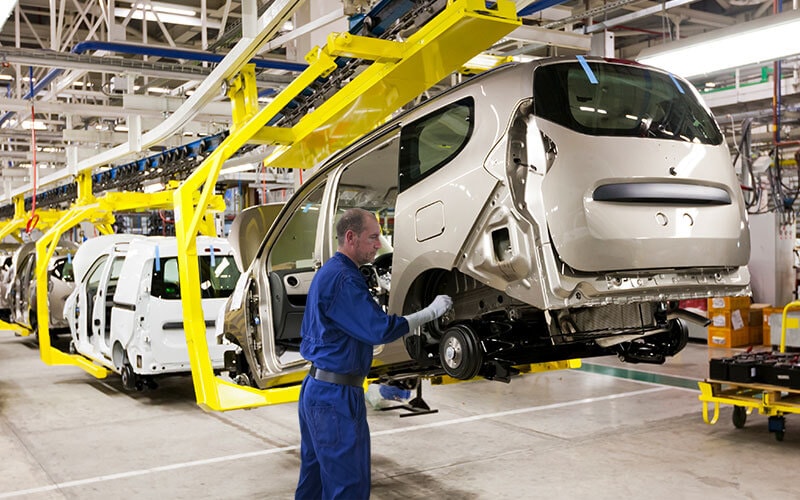The Infosys Automotive practice leverages digital technologies to address goals of product development: robust product portfolio, high quality benchmarks, shrinking lifecycle, mobility trends, and reduced waste as well as pollution. Our cross-industry experience in product engineering across mechanical, electronics and software platforms enables rapid prototype building and validation. Further, it enables a ground-up approach to product design, engineering and production services to enhance horizontal and vertical value chains.
The Infosys Asset Efficiency Testbed, developed in collaboration with the Industrial Internet Consortium (IIC), tracks uptime of industrial assets and boosts productivity via Internet of Things (IoT) technology and advanced analysis of near real-time data. We implement Industry 4.0 solutions to boost mission-critical dimensions of new products – strategy, development and resources management.
Our digital ecosystem for connected automobiles integrates product, supplier, enterprise, and customer data. This ensures better visibility into vehicle usage, recurring mechanical issues and driving behavior. The data serves as input to distill insights such as driving patterns that cause increased wear-and-tear or higher emissions, suppliers of components that fail frequently, minimum sales threshold for financial feasibility of a model, etc.
Integrated product development enables us to replace trial-and-error development methods with machine learning algorithms and knowledge-driven systems for systematic assessment of new models. In addition, it ensures new components are compatible with AUTOSAR tools and complies with standards / regulations.
Our data-driven engineering frameworks maximize R&D budgets, and drive big data analytics to improve remote diagnostics, modify control algorithms for driver assistance, and redesign infotainment systems, among other use cases. Significantly, our unified database helps automakers undertake root cause analysis and manage software updates for embedded systems. It also empowers product designers and development engineers to accelerate validation of vehicle platforms and reuse elements across engine families, vehicle configurations and delivery programs.







